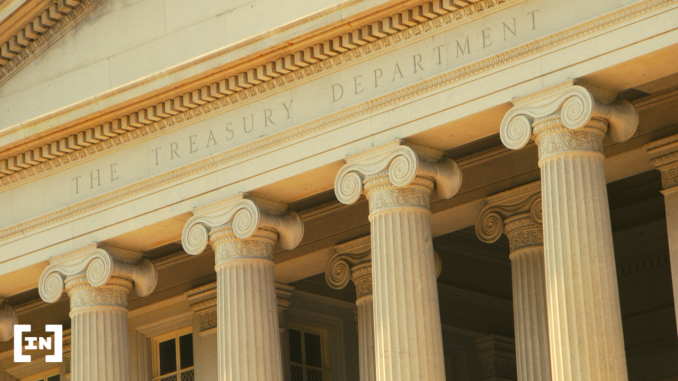
The U.S. Treasury Department is progressing towards addressing the anonymity of unhosted crypto wallets as a part of Joe Biden’s wider technique to sort out illicit finance involving digital belongings.
Following two guidelines proposed by the Financial Crimes Enforcement Network (FinCEN) in 2020 that implement transaction reporting on unhosted pockets transactions exceeding $10,000, whereas additionally compelling banks to gather info on a buyer and their counterparty for any transaction exceeding $3,000 involving an unhosted pockets, U.S. Deputy Treasury Secretary Wally Adeyemo affirmed that the federal government company has made progress.
Speaking at Consensus 2022, Adeyemo confirmed:
“…we are working to address the unique risks associated with unhosted wallets…Fundamentally, financial institutions need to know who they are transacting and doing business with to make sure they are not making payments to criminals, sanctioned entities, or others. When it comes to unhosted wallets, we are working to provide them the information they need to avoid facilitating these kinds of illicit payments.”
Increased scrutiny of unhosted wallets emerged after sanctions have been imposed on the Russian Federation following its invasion of Ukraine. However, proof is scant that Russians used crypto to skirt such sanctions.
Treasury Dept: Travel Rule won’t infringe on privateness
Without going into particulars, Adeyemo went on to describe the Travel Rule, which might expose the actual identities of senders and receivers of cryptocurrency funds to all monetary establishments concerned in a transaction, to safeguard nationwide safety and implement the Bank Secrecy Act.
To tackle considerations about privateness infringements, Adeyemo mentioned that the company is set to draft rules benefitting the broader purpose of nationwide safety whereas permitting innovation in fee applied sciences.
“America’s international position and ability to safeguard our national security rests in no small part on our global financial leadership. We in government know as you do that the future of the global financial system is increasingly digital.”
Regulatory push is coming from many instructions
The response from the Treasury Department follows an government order issued by U.S. President Joe Biden for a number of authorities businesses to analysis cryptocurrencies. These businesses embody the Treasury Department, the Securities and Exchange Commission, and the Office of the Comptroller of the Currency.
Section 7 of the Executive Order addresses dangers related to cybercrime involving cryptocurrencies and duties the Secretary of the Treasury and 6 different authorities officers with submitting supplemental annexes to the president, describing their views on “illicit finance risks posed by digital assets, including cryptocurrencies, stablecoins, CBDCs, and trends in the use of digital assets by illicit actors” inside 90 days of their submissions to one other company, the Congress of the National Strategy for Combating Terrorist and Other Illicit Financing.
Within 120 days of submission to the Congress of the National Strategy for Combating Terrorist and Other Illicit Financing, the Treasury Secretary and others would want to submit a coordinated interagency plan for mitigating the dangers of illicit finance.
The Treasury Department joins Senator Cynthia Lummis (R-Wyo) and Senator Kirsten Gillibrand (D-NY) who launched draft rules earlier this week. While not too long ago launched, the brand new invoice received’t actually come into impact till not less than 2023, as upcoming mideterm elections are of precedence. In its present type, the invoice explains what forms of stablecoins could be allowed, which cryptocurrencies fall beneath the jurisdiction of the CFTC, and which fall beneath the purview of the SEC.
What do you consider this topic? Write to us and inform us!
Disclaimer
All the data contained on our web site is revealed in good religion and for common info functions solely. Any motion the reader takes upon the data discovered on our web site is strictly at their very own danger.



